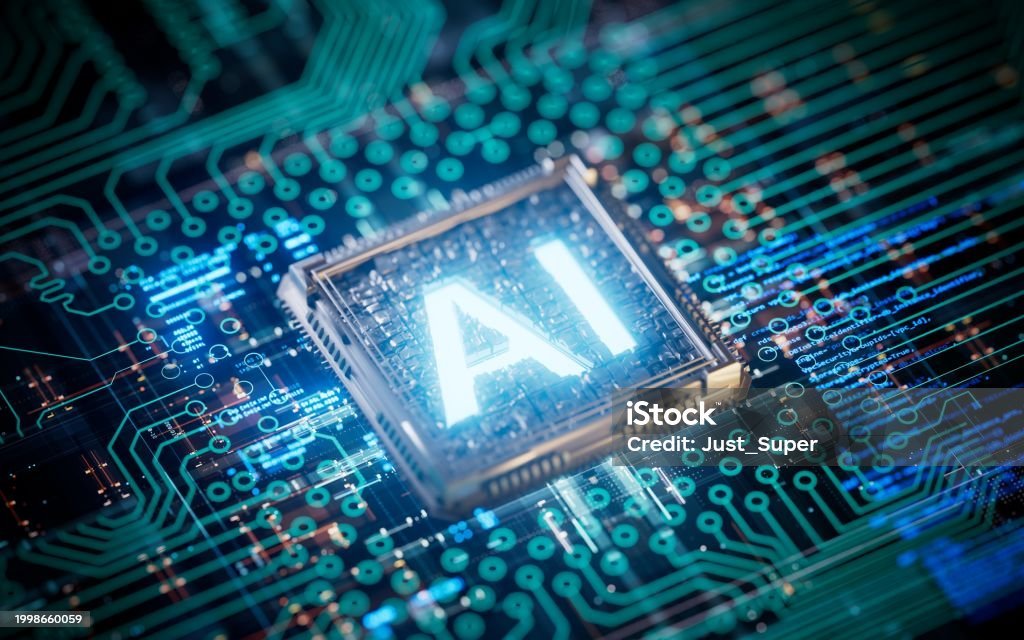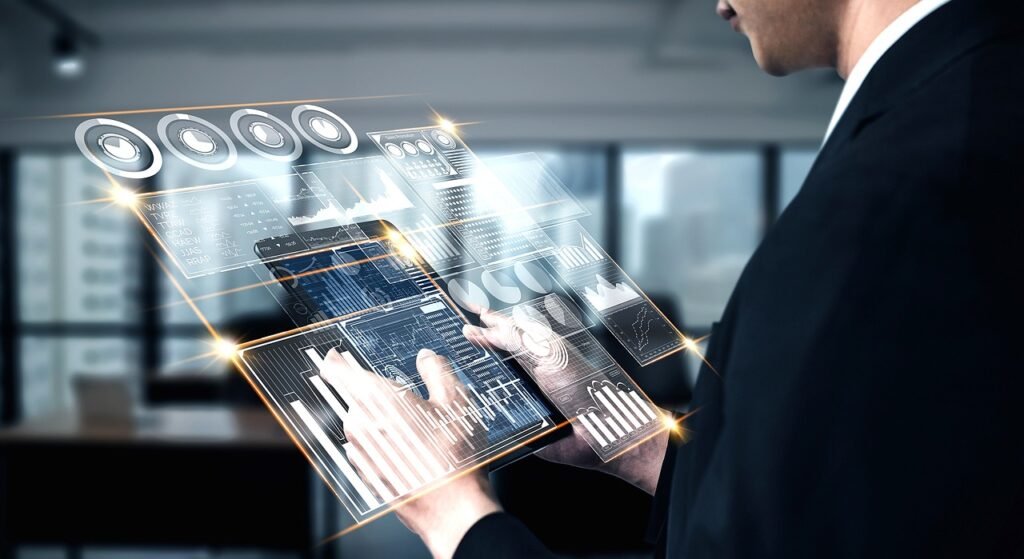The Transformative Impact of Artificial Intelligence
Artificial Intelligence (AI) is revolutionizing colorful sectors of society and diligence, reshaping the way businesses operate, how people learn, and indeed how healthcare is delivered. As AI technologies continue to advance, they bring immense eventuality for invention while presenting ethical challenges and societal counter accusations. This composition explores the top 10 improvements in AI that are shaping the world, discusses their operations, and highlights the broader impact across different diligence.
Introduction to Artificial Intelligence (AI)
Artificial Intelligence refers to the simulation of mortal intelligence in machines that are designed to suppose reason and perform tasks traditionally taking mortal intervention. From simple tasks like feting speech to more complex functions like medical opinion, AI is deeply bedded in our diurnal lives. Its elaboration over the times — from rule- grounded systems to sophisticated machine literacy models has led to groundbreaking advancements across multitudinous fields.

Top 10 improvements in AI
1. Natural Language Processing( NLP)
Natural Language Processing enables machines to understand, interpret, and induce mortal language. Tools like ChatGPT, Google’s BERT, and virtual sidekicks like Siri and Alexa have become integral in enhancing communication and client service. NLP has also helped businesses dissect client feedback and ameliorate services through sentiment analysis and automatic textbook generation.
2. Generative AI Models
Generative AI has introduced important models like DALL- E, which can produce mortal-like images, and GPT models, which produce high- quality textbooks. These advancements are driving content creation, art, music, and marketing. Generative AI is standardizing creativity by allowing individualities and businesses to induce unique and individualized content efficiently.
3. AI in Healthcare
iHealthcare assistance has witnessed transformative changes thanks to AI. Individual tools powered by AI can describe conditions at earlier stages through prophetic analytics and image recognition. Robotic surgeries, powered by AI, enhance perfection and allow for minimally invasive procedures, reducing recovery times. Likewise, individualized drug acclimatization to an existent’s inheritable makeup is getting decreasingly doable, leading to better treatment issues.
4. Autonomous Vehicles
AI is the driving force behind tone- driving buses , revolutionizing transportation. Companies like Tesla and Waymo use AI for advanced navigation, handicap discovery, and real- time business operation, creating safer and more effective trip guests . Autonomous vehicles promise to reduce business accidents and ameliorate mobility for individualities in remote areas.
5. AI- Powered Robotics
AI- driven robots are getting more intelligent and adaptable. From artificial robots enhancing manufacturing productivity to surgical robots aiding in delicate procedures, these systems are perfecting effectiveness and delicacy. cooperative robots(cubits) work alongside humans, automating repetitive tasks while maintaining inflexibility for creative problem- working.
6. AI in Education
The education sector is witnessing a significant metamorphosis with AI. Adaptive literacy platforms use AI to customize content grounded on individual pupil needs. These platforms assess pupil progress and offer substantiated recommendations, helping learners grasp generalities at their own pace and perfecting overall academic issues. AI also helps automate executive tasks, freeing up preceptors to concentrate more on tutoring.
| Section | Description |
|---|---|
| Introduction | AI simulates human intelligence in machines, revolutionizing various industries and aspects of life. |
| Top 10 Breakthroughs in AI | Highlights major advancements like NLP, Generative AI, Healthcare, Autonomous Vehicles, etc. |
| 1 Natural Language Processing (NLP) | Enables machines to understand and generate human language, e.g., ChatGPT, Siri, and Alexa. |
| 2 Generative AI Models | Creates human-like content such as text, images, and music through models like GPT and DALL-E. |
| 3 AI in Healthcare | Uses predictive analytics and robotics to improve diagnostics and surgeries. |
| 4 Autonomous Vehicles | Relies on AI for navigation, obstacle detection, and traffic management in self-driving cars. |
| 5 AI-Powered Robotics | Smart robots improve manufacturing and precision in surgeries through AI integration. |
| 6 AI in Education | Personalizes learning experiences with adaptive platforms for individual student needs |
| 7 Cybersecurity Enhancements | Strengthens data protection through real-time threat detection and vulnerability management. |
| 8 AI in Agriculture | Utilizes predictive analytics and drones to optimize crop yields and sustainable farming practices. |
| 9 Voice and Speech Recognition | Breaks language barriers with real-time translation and voice-controlled technology. |
| 10 AI in Entertainment | Enhances user experience with personalized recommendations and virtual reality in media platforms. |
| Impact of AI Across Industries | AI is transforming industries through automation and data-driven insights, but with ethical challenges. |
| Ethical Considerations | Focuses on bias management, privacy, and responsible AI development to ensure ethical use. |
| Future of Artificial Intelligence | Advances like quantum computing and ethical AI will shape smarter, interconnected systems. |
| Conclusion | AI is a transformative force reshaping industries and daily life, requiring responsible development. |

7. Cybersecurity Enhancements
AI is pivotal in enhancing cybersecurity by furnishing real- time trouble discovery and visionary security measures. By relating vulnerabilities and precluding vicious conditioning, AI systems defend against cyberattacks, guarding sensitive data for both businesses and individualities. Also, AI- powered systems help manage large- scale networks, minimizing the threat of data breaches.
8. AI in Agriculture
Agriculture is served from AI through prophetic analytics and perfection husbandry. AI- powered drones, detectors, and automated systems enable growers to cover crop health, optimize resource operation, and prognosticate yields with advanced delicacy. This helps in promoting sustainable husbandry practices and reducing waste, eventually contributing to global food security.
9. Voice and Speech Recognition
AI is breaking language walls with advanced voice recognition technologies. From real- time restatement services to voice- actuated smart bias, these inventions ameliorate availability and convenience. Businesses are also using voice recognition to enhance client service, offering flawless and individualized guests .
10. AI in Entertainment
The entertainment industry is using AI to produce further immersive guests . Platforms like Netflix use recommendation machines powered by AI to suggest content acclimatized to stoner preferences. Also, AI is used to induce virtual reality guests and epitomize gaming surroundings, perfecting the overall entertainment geography.
Impact of AI Across diligence
AI is transubstantiation diligence at an unknown pace. By automating routine tasks and offering perceptivity through data- driven decision- timber, AI improves effectiveness, productivity, and invention. Still, with these advancements come challenges similar as job relegation, ethical dilemmas, and sequestration enterprises. Companies must strike a balance between using AI’s capabilities and icing responsible deployment to minimize pitfalls.
The Ethical Considerations of AI
As AI becomes more sophisticated, ethical enterprises must be addressed. Issues like bias in AI models, data sequestration, and the responsible use of AI technologies are consummate. sweats are being made to produce more transparent, fair, and secure AI systems. Regulatory fabrics are evolving to ensure that AI is stationed in a way that benefits society without causing detriment.
The Future of Artificial Intelligence
The future of AI is filled with promising advancements. With the integration of amount computing, edge AI, and cooperative AI systems, the eventuality for invention continues to grow. Also, AI is anticipated to come more into the Internet of effects( IoT), enabling smarter and connected systems that operate autonomously. As AI progresses, continued collaboration between technology inventors, policymakers, and ethicists will be essential to shaping a sustainable and inclusive AI ecosystem.
Conclusion
Artificial Intelligence is reshaping diligence, enhancing our everyday lives, and driving invention. From revolutionizing healthcare and education to transubstantiation transportation and husbandry, AI has come an essential force for progress. Still, the responsible use and development of AI bear careful consideration of ethical issues and societal impact. As we continue to push the boundaries of AI, balancing invention with responsible deployment will be pivotal in icing that AI serves the lesser good for humanity.
FAQs About Artificial Intelligence(AI)
What’s Artificial Intelligence( AI)?
AI refers to the simulation of mortal intelligence in machines designed to perform tasks that bear mortal- suchlike cognition, similar as problem- working, learning, and decision- timber.
How is AI used in everyday life?
AI is used in virtual sidekicks( Siri, Alexa), recommendation systems( Netflix, Spotify), facial recognition systems, smart homes, and prophetic analytics in finance and healthcare.
What diligence profit the most from AI?
diligence like healthcare, finance, transportation, education, husbandry, and retail are passing significant advancements through AI.
What are the pitfalls associated with AI?
pitfalls include job relegation, data sequestration enterprises, algorithmic bias, and implicit abuse of AI technologies for vicious purposes.
Can AI replace mortal jobs?
While AI automates repetitious tasks, it’s more likely to compound mortal work by handling mundane tasks, enabling workers to concentrate on advanced- value, creative, and strategic places.
What’s the future of AI?
The future of AI includes advancements in amount computing, AI integration with IoT, and a lesser focus on ethical and responsible AI development.
What’s Generative AI?
Generative AI refers to models capable of creating new content — ranging from textbook and images to music and videos — grounded on patterns learned from being data.
How does AI impact education?
AI enhances education by offering substantiated literacy gests , automating executive processes, and enabling virtual classrooms for remote literacy
Is AI dangerous?
AI itself is n’t innately dangerous, but indecorous or unethical use can lead to significant challenges, including bias, sequestration pitfalls, and security vulnerabilities.
How can I learn AI?
To learn AI, individuals can explore online courses, instruments, and hands- on systems available on platforms like Coursera, Udemy, and edX.
